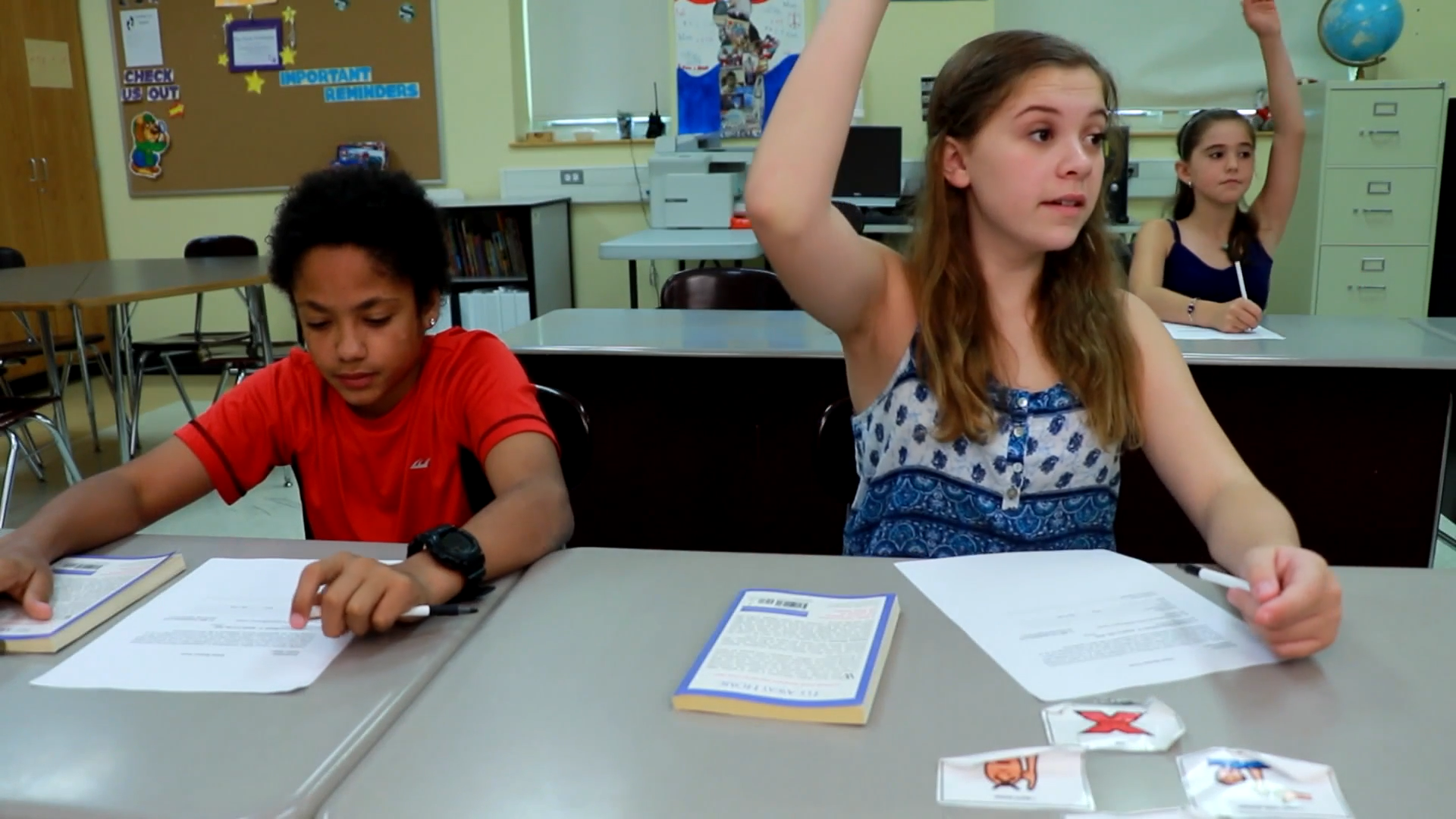Introduction
Effective communication is an essential component of Social-Emotional Learning, and it plays a crucial role in a student’s ability to participate actively in class. For elementary students, understanding and following the social rules of communication can be challenging. This blog post will discuss important communication skills for students when answering questions in class, including waiting to be called on, using appropriate voice volume, and providing concise responses. We will also provide a no-prep activity, discussion questions, and related skills to help educators ensure their students develop these essential classroom communication skills.
No-Prep Activity
The “Question Relay” is an engaging activity that requires no preparation or materials from the educator. It helps students practice waiting to be called on, using appropriate voice volume, and providing concise answers. Here’s how it works:
- Divide the class into two or more teams.
- Have each team form a line.
- The educator asks a question, and the first student in each line must raise their hand to answer.
- Once the educator calls on a student, they must answer the question using appropriate voice volume and without taking too long.
- The student who answers correctly moves to the end of their team’s line, and the next student becomes the active participant for their team.
- The game continues until all students have had a chance to answer questions or a predetermined time limit is reached.
This activity encourages students to practice essential communication skills while engaging in friendly competition.
Discussion Questions
- Why is it essential to wait until you are called on before answering a question in class?
- How can we determine the appropriate voice volume to use when answering questions in class?
- What strategies can we use to provide concise answers without taking too long?
- How do these communication skills contribute to a positive classroom environment?
- Can you think of a situation outside of the classroom where these communication skills would be helpful?
Related Skills
In addition to the communication skills discussed in this post, other essential Social-Emotional Learning skills students should develop include:
- Active listening
- Taking turns in conversation
- Reading and interpreting nonverbal cues
- Expressing empathy and understanding
- Resolving conflicts in a respectful manner
These related skills help students build strong communication habits, which in turn contribute to a positive classroom environment and overall academic success.
Next Steps
Now that you have learned about essential classroom communication skills and an engaging no-prep activity, it’s time to put these strategies into practice. To further support your students’ Social-Emotional Learning journey, consider signing up for free samples of skill-building materials and other resources at Everyday Speech. These valuable resources can help you effectively teach a variety of communication and social skills to your elementary students, fostering a more inclusive and successful learning environment.






